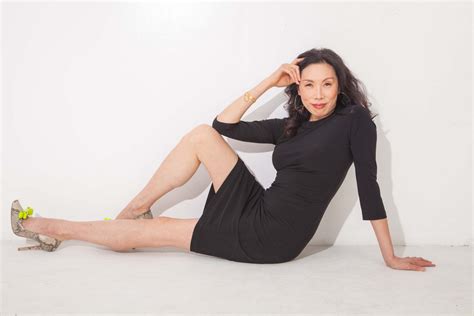A Quote by Veronica Roth
And I'm the kind of person who does not let inconsequential things like boys and near death experiences stop her.
Quote Topics
Related Quotes
How will a person know, Selina, when the soul that has the affinity with hers is near it?" She answered, "She will know. Does she look for air, before she breathes it? This love will be guided to her; and when it comes, she will know. And she will do anything to keep that love about her, then. Because to lose it will be like a death to her.
The Soul is a fact, but it is not physical. ... Survivors of near-death experiences attest that some part of them apparently detaches from their physical bodies following the death of the body, but while that is proof of the soul for them, it does not prove it to us. The Soul is like divine music that only God can hear; it is the force of endless resurrection; the soul is like a fire that never goes out.
Someone was trying to kill Lady Alexia Maccon. It was most inconvenient, as she was in a dreadful hurry. Given her previous familiarity with near-death experiences and their comparative frequency with regards to her good self, Alexia should probably have allowed extra time for such a predictable happenstance.
I discovered a long time ago that writing of the small things of the day, the trivial matters of the heart, the inconsequential but near things of this living, was the only kind of creative work which I could accomplish with any sincerity or grace. As a reporter, I was a flop, because I always came back laden not with facts about the case, but with a mind full of the little difficulties and amusements I had encountered in my travels.
There is no single best kind of death. A good death is one that is "appropriate" for that person. It is a death in which the hand of the way of dying slips easily into the glove of the act itself. It is in character, ego-syntonic. It, the death, fits the person. It is a death that one might choose if it were realistically possible for one to choose one's own death.
I always wonder when people have any kind of spiritual and meditative practice especially if it's one designed in part to help them cope with things that seem unmanageable and to cope with something like death, if they're able to maintain that practice and maintain the equanimity at the time of death whether it's, you know, that person's or that person's loved one.






































